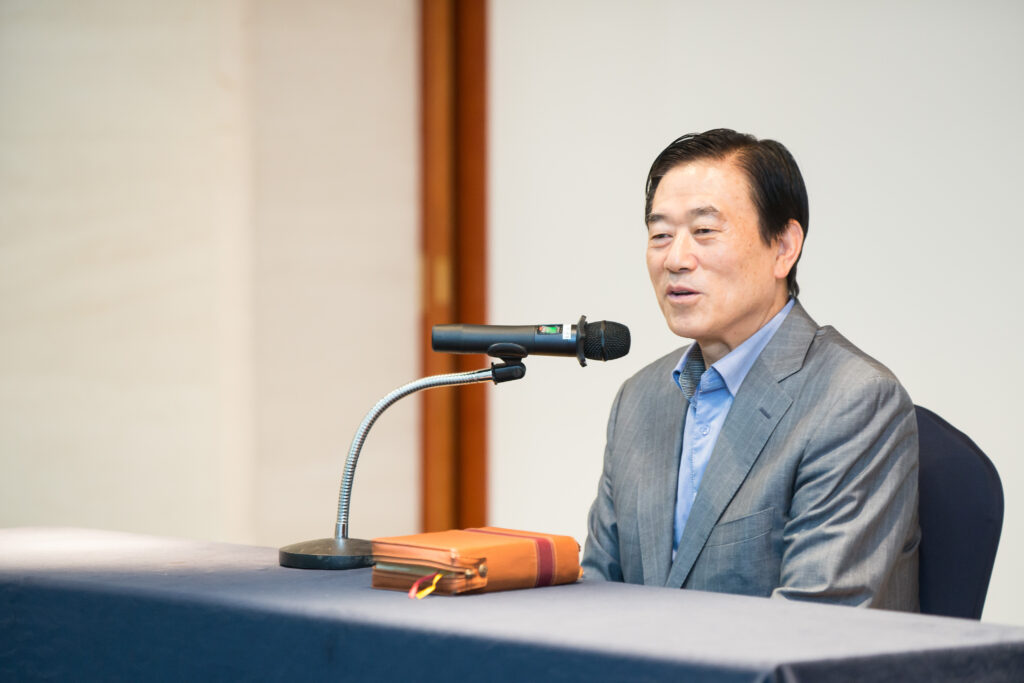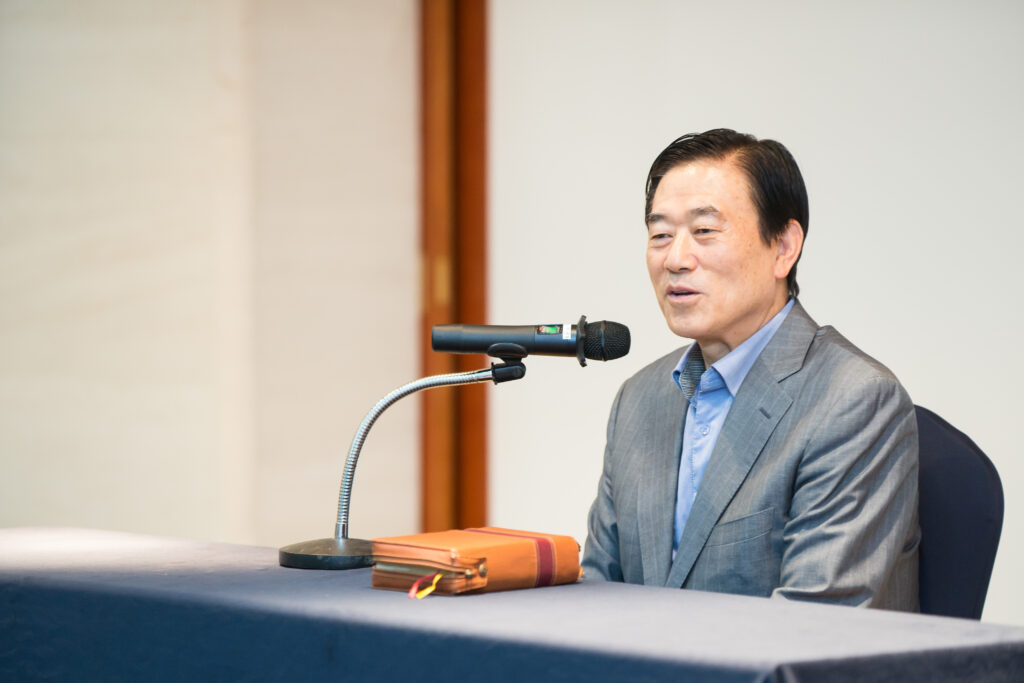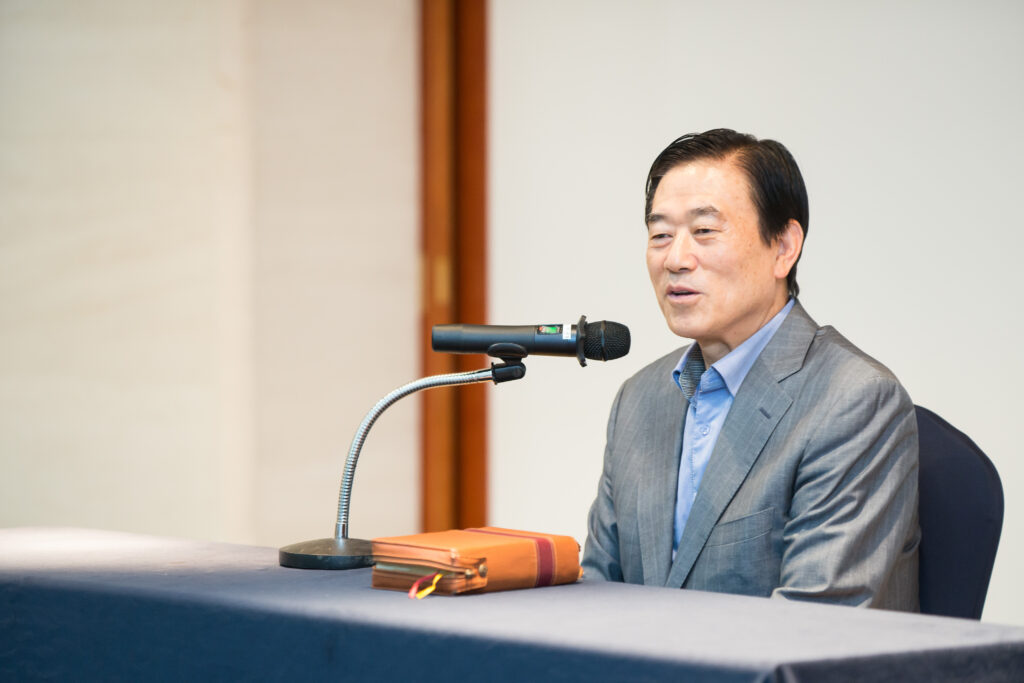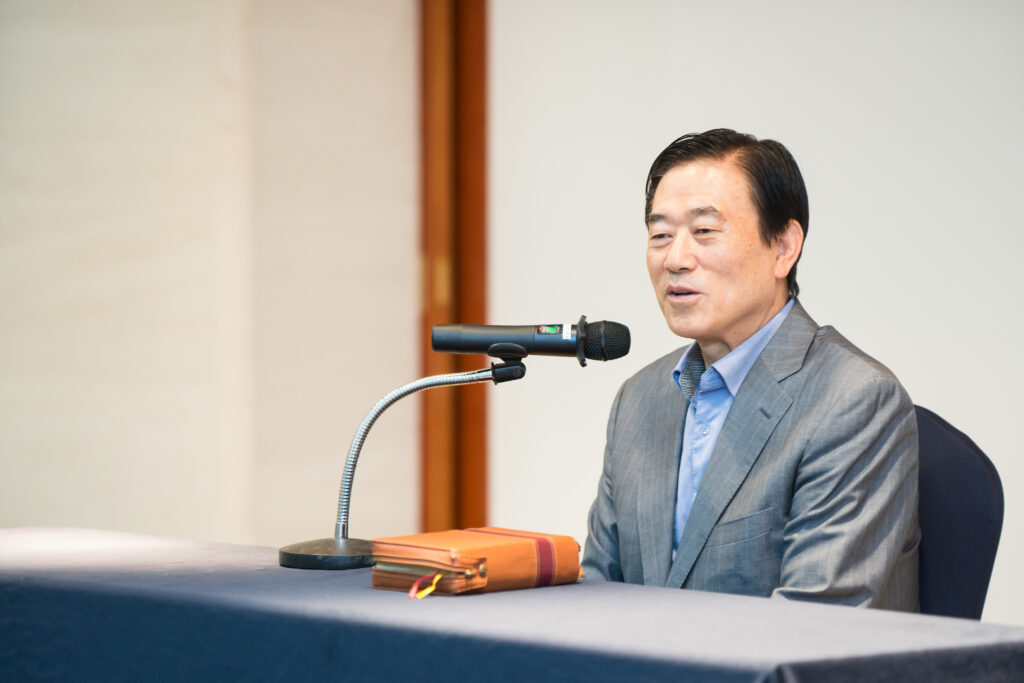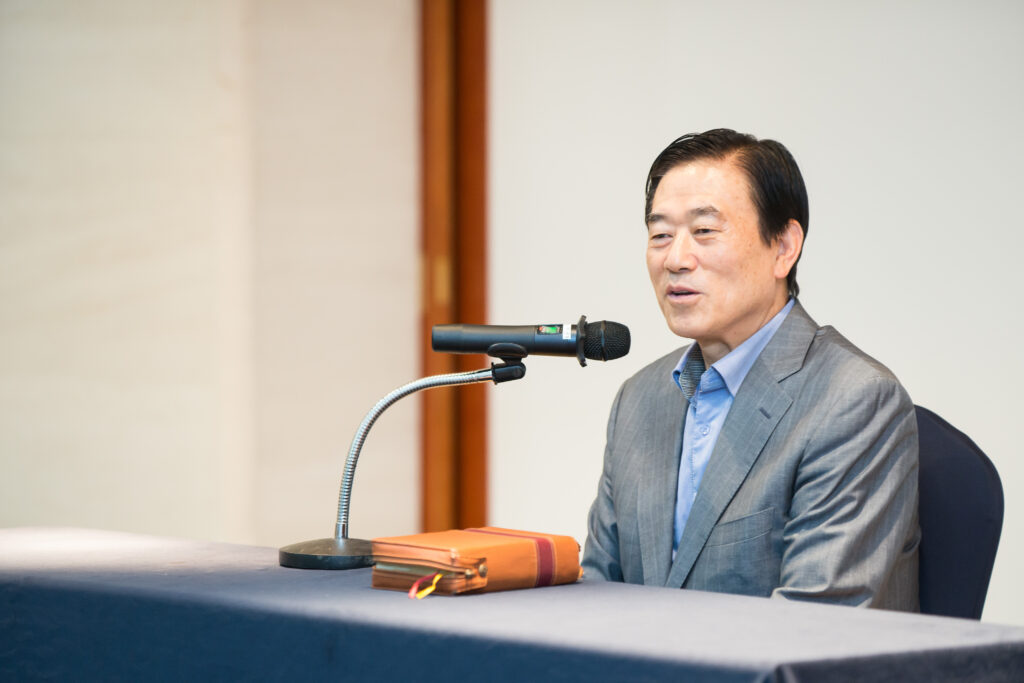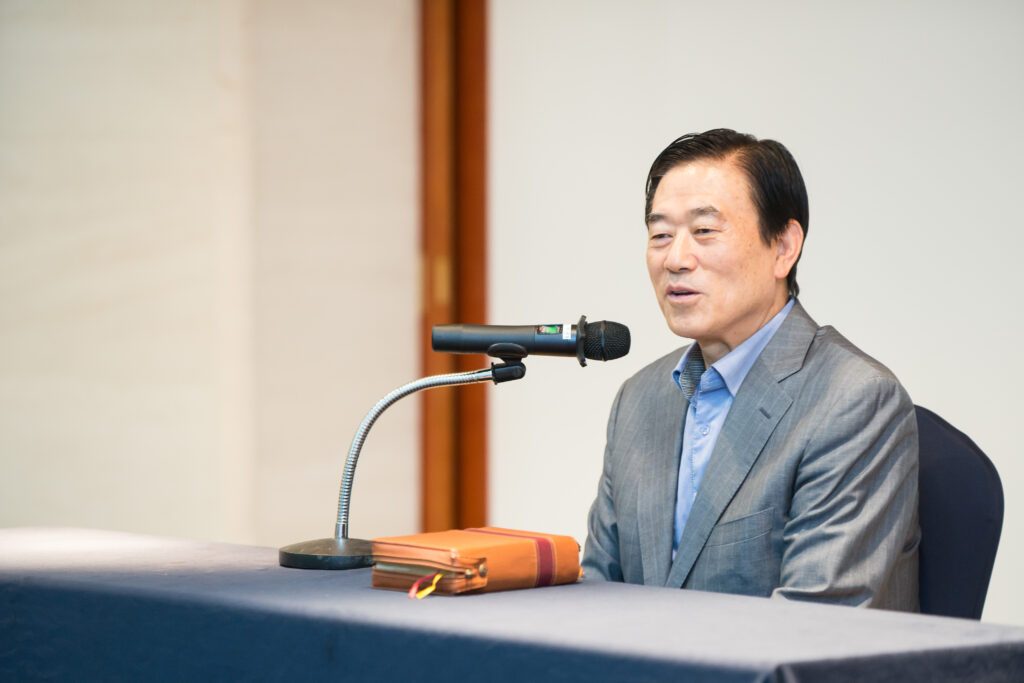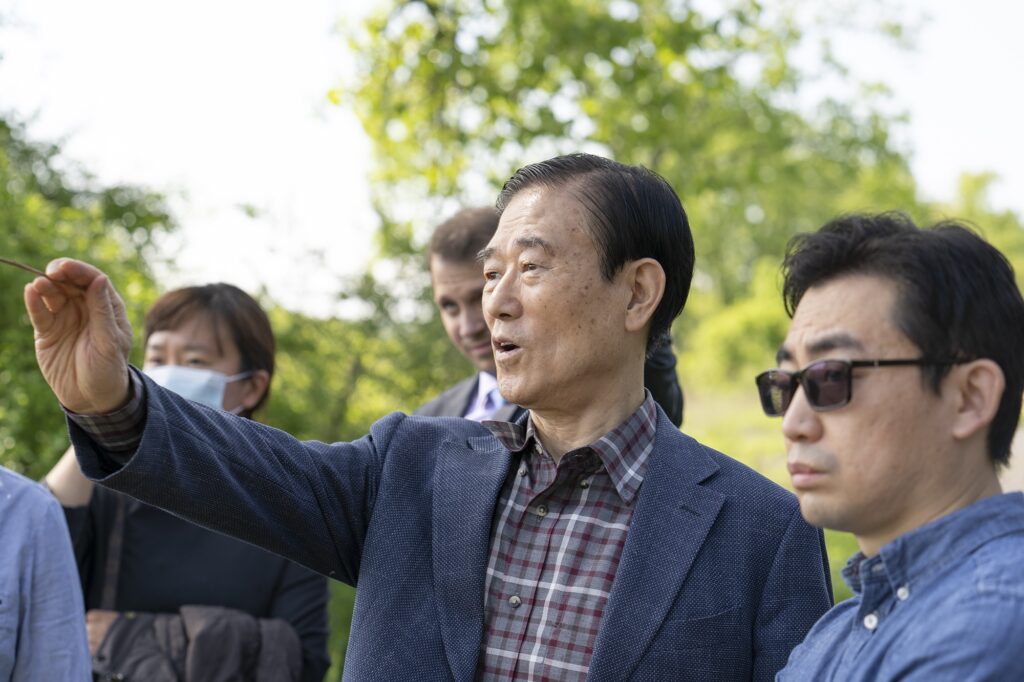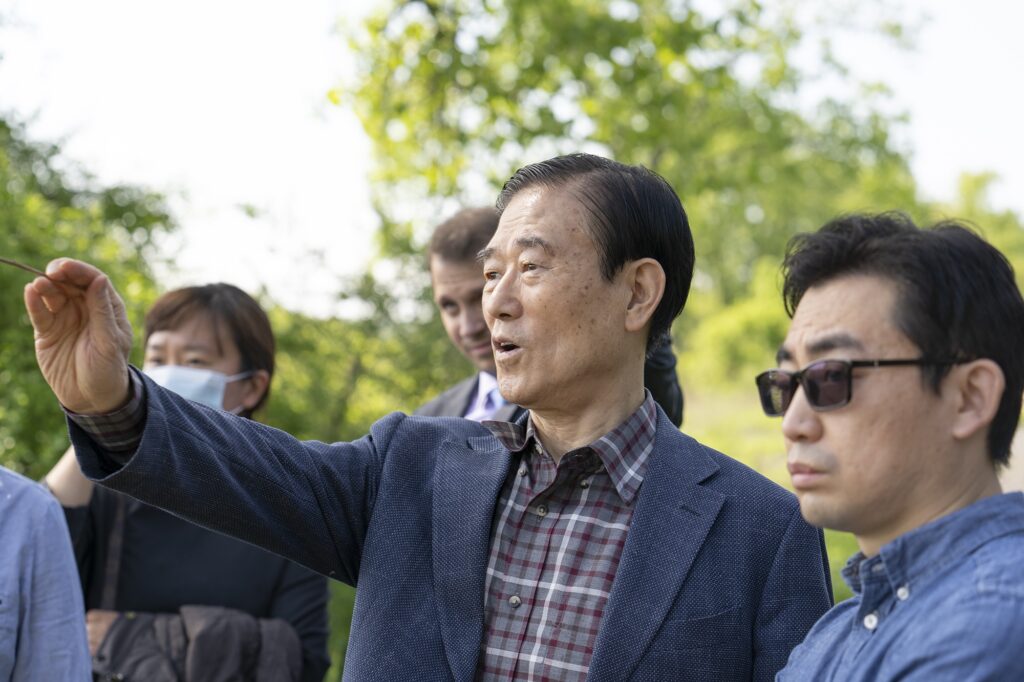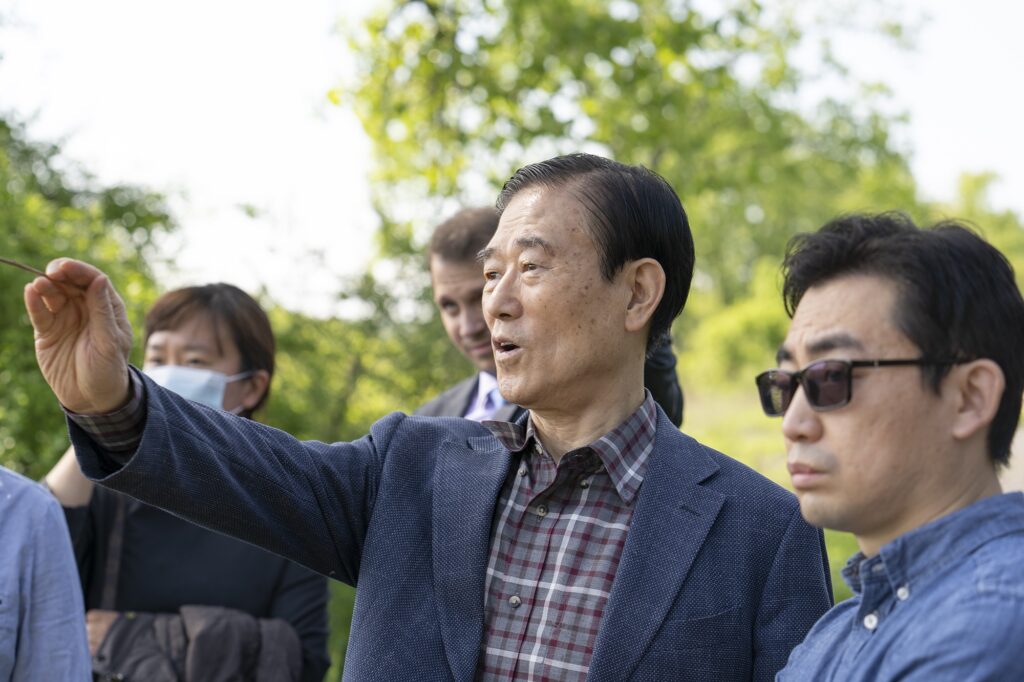
1. La esencia de la fe y la importancia de Gálatas 3
Comprender correctamente Gálatas 3 equivale a obtener la clave central para entender toda la Carta a los Gálatas. Esto se debe a que el apóstol Pablo menciona la palabra “fe” nada menos que catorce veces en este capítulo. En él se concentran la relación entre la Ley y la fe, así como el carácter universal de la salvación que abarca no solo al pueblo de Israel, sino también a los gentiles. Gálatas, que desde la época de la Reforma Protestante llegó a ser conocida como la “epístola de la libertad”, proclama con contundencia la libertad, la gracia y la fe, y tras ello se encuentra la enseñanza fundamental que el apóstol Pablo expone especialmente en el capítulo 3.
El pastor David Jang, a lo largo de décadas de predicación en Corea y en distintas partes del mundo, ha resaltado el mensaje esencial de Gálatas 3 para quienes, inmersos en el legalismo, pierden de vista la esencia de la salvación. En especial, ha insistido en la verdad de que “obtenemos la salvación por la fe”, es decir, la justificación por la fe (이신득의), como la doctrina más importante que debe cimentarse en la Iglesia. Este énfasis está en la misma línea de la verdad establecida en el Concilio de Jerusalén (Hechos 15), donde la Iglesia llegó a un consenso común: “También los gentiles son salvos por la fe, no por la Ley”.
De hecho, la conclusión del Concilio de Jerusalén confirmó que “somos salvos por la fe”, reafirmando la verdad de que la Ley no puede librarnos del pecado y de la muerte. Los judaizantes (o falsos maestros) argumentaban que sin circuncisión ni observancia de la Ley, la salvación no podía completarse. Sin embargo, los apóstoles Pedro, Pablo y Santiago declararon en aquella reunión que ni la circuncisión ni las ceremonias rituales podían ser condiciones esenciales para la salvación. Desde la Iglesia primitiva, quedó establecido que “solo por gracia y solo por fe somos justificados”, y Gálatas 3 expone esta verdad de manera contundente.
En toda la Carta a los Gálatas, Pablo se propone demostrar qué significado tiene el evangelio que él mismo predicó y cómo está en plena sintonía con el evangelio de los apóstoles de Jerusalén. Ese evangelio proclama: “No recibimos la salvación por medio de la Ley, sino únicamente mediante la fe en Jesucristo”. Esta enseñanza provocó la oposición de numerosos judaizantes, pero es en Gálatas 3 donde Pablo la defiende de manera más directa.
Pablo presenció cómo los falsos maestros se habían infiltrado en la Iglesia, difundiendo la idea de que “aunque creas en Jesús, debes cumplir la Ley y hasta circuncidarte para conseguir una salvación completa”. Así, algunos de los creyentes en Galacia, que originalmente habían recibido la libertad por gracia y por fe, volvieron a caer en una “religiosidad legalista”. Por ello, en el versículo 1 del capítulo 3, Pablo los reprende con vehemencia: “¡Oh gálatas insensatos!”. Aun habiendo visto el único camino a la salvación a través de la cruz de Jesucristo, estaban siguiendo otro evangelio. El fuerte reclamo de Pablo –“¿Ante cuyos ojos Jesucristo fue ya presentado claramente entre vosotros como crucificado? ¿Quién os fascinó?”– es una advertencia urgente que la Iglesia de hoy también debe atender.
El pastor David Jang, en repetidas ocasiones, tanto en predicaciones como en conferencias y a través de su ministerio escrito, subraya que “el centro de Gálatas 3 es la cruz, la resurrección y la seguridad de la salvación que obtenemos por la fe”. Enseña repetidamente la verdad bíblica de que la Ley expone el pecado y nos hace ver que somos incapaces de salvarnos a nosotros mismos, pero no puede resolver el problema del pecado. Precisamente ese problema, revelado por la Ley, fue resuelto de manera definitiva por Jesucristo al asumir todo el castigo y la maldición en la cruz. Esto es el “evangelio”. Y la esencia de la salvación cristiana radica en “recibir ese evangelio por fe”.
Aunque “fe” es un término muy usado en la vida cristiana, Gálatas 3 profundiza en su definición y significado. Explica qué es la fe, cómo funciona y por qué podemos recibir la salvación solo a través de ella. Para ello, el apóstol toma incluso ejemplos del Antiguo Testamento (especialmente de Abraham). Se trata de lecciones que se resumen en los siguientes puntos:
- La salvación proviene de la gracia.
- Esa gracia se ha manifestado decisivamente en la cruz y en la resurrección de Jesucristo.
- Nosotros únicamente tenemos que acoger esa gracia mediante la fe.
En Gálatas 3, Pablo desarrolla este tema de un modo lógico y contundente. Por ello, para que la Iglesia no pierda el núcleo de la doctrina de la salvación, es fundamental atesorar lo enseñado en este capítulo. El pastor David Jang enfatiza: “En la actualidad muchos creyentes conocen ‘la salvación por fe’ solo de manera teórica, pero no la aplican verdaderamente a su vida”. Y lamenta que “muchos, atados a la Ley, a reglamentos, a tradiciones eclesiales o a patrones socioculturales, se condenan a sí mismos y, peor aún, condenan también a los demás”. Ante esta realidad, ha llamado repetidamente a la Iglesia a volver a proclamar el “evangelio de la libertad” tal como lo presenta Pablo.
En conclusión, Gálatas 3, al comparar los grandes ejes de “la fe” y “la Ley”, enseña que la justificación se obtiene únicamente por la fe. La expresión “¡Oh gálatas insensatos!” de Pablo no es un mero reproche; es un clamor apasionado para que la Iglesia no regrese al yugo de la Ley. Hoy, nosotros también debemos atender esta exclamación de Pablo y disfrutar de la verdadera libertad que hay en la gracia.
2. La fe de Abraham, el choque con el legalismo y la argumentación de Pablo
En la parte inicial de Gálatas 3, Pablo lanza esta pregunta: “¿Recibisteis el Espíritu por las obras de la Ley o por el oír con fe?” (Gál 3:2). Es un recordatorio para los cristianos de Galacia, quienes ya habían experimentado al Espíritu Santo. Si recibieron el Espíritu, ello les debe hacer constatar que su salvación llegó por fe y no por la Ley ni por ningún rito. Dicho de otra forma, si experimentaron dones, nacieron de nuevo, hablaron en lenguas o profetizaron como obra del Espíritu, todo ello ocurrió como resultado de creer en el evangelio de Jesucristo, no por cumplir las exigencias legales.
Pero Pablo da un paso más y menciona al más grande de los antepasados del Antiguo Testamento, Abraham (Gál 3:6). La razón es que los falsos maestros legalistas ponían a Abraham como su ejemplo principal: “Nuestro antepasado Abraham fue justificado ante Dios por la Ley y por la circuncisión”. Sin embargo, Abraham fue declarado justo cuando “creyó a Dios”, antes de que entrara en juego la circuncisión (Gn 15:6). El pastor David Jang, en diversas predicaciones y estudios bíblicos, suele citar los relatos de Abraham de Génesis 12 a 17 para recalcar “que Abraham ya había recibido la justicia de parte de Dios antes de hacerse la circuncisión”.
La circuncisión aparece en Génesis 17. En otras palabras, cuando se declara en Génesis 15:6: “Y creyó a Jehová, y le fue contado por justicia”, todavía no se había instituido la circuncisión. Asimismo, la Ley, con sus prescripciones concretas recogidas en el Pentateuco, fue entregada a Moisés 430 años después de la época de Abraham (según Gál 3:17). Por lo tanto, la justicia de Abraham no provenía ni de la Ley ni de la circuncisión. Él fue llamado justo al obedecer (Heb 11:8: “salió sin saber a dónde iba”), recibir la promesa de “una tierra y una descendencia tan numerosa como las estrellas del cielo” y creer la Palabra de Dios que le ordenaba partir hacia una tierra desconocida.
Pablo denomina este principio “la justicia que recibió cuando aún no estaba circuncidado” (Rom 4:9-10). Es decir, primero fue declarado justo por su fe, y la circuncisión no fue sino la señal de esa justicia ya otorgada. Romanos 4 contiene muchos pasajes paralelos con Gálatas 3. Allí Pablo vincula “la dicha de aquella persona a quien Dios atribuye justicia sin obras” con la confesión de David (Rom 4:6-8). Y llega a la conclusión de que Abraham fue justificado no por obras, sino exclusivamente por su fe.
El pastor David Jang destaca especialmente la conexión entre Romanos y Gálatas: conocer Gálatas 3 permite entender mejor Romanos 4–5, y entender bien Romanos ayuda a clarificar aún más Gálatas 3. Se trata de un tema que se remonta a la raíz profética de Habacuc 2:4 (“el justo por la fe vivirá”), recogida por Pablo tanto en Gálatas 3:11 como en Romanos 1:17, conformando así la columna vertebral de la doctrina de la salvación en todo el Nuevo Testamento.
El hecho de que esa misma gracia se extienda a los gentiles queda claro en la declaración de Pablo de que Abraham se convierte en “padre de todos los creyentes” (Gál 3:7; Rom 4:11-12). Para los judíos, que consideraban a Abraham únicamente como el padre de su nación, la proclamación de Pablo fue revolucionaria. Sin embargo, la lógica del evangelio que defiende es la siguiente:
- Abraham fue justificado antes de recibir la Ley; es decir, fue declarado justo cuando creyó a Dios.
- Por ende, la Ley o la circuncisión no son condiciones absolutas para la justificación.
- La vía para recibir la justicia “solo por la fe”, igual que Abraham, está abierta para toda la humanidad.
- Por tanto, los gentiles que creen en el evangelio de Jesucristo quedan injertados en la “descendencia espiritual” de Abraham.
En Gálatas 3:10-12, Pablo llega a decir: “Todos los que dependen de las obras de la Ley están bajo maldición” (cita de Dt 27:26). Nadie puede cumplir la Ley de manera perfecta (Rom 3:10). Más bien, la Ley manifiesta más claramente el pecado, intensificando la culpa y la condenación. Cuando en 1 Corintios 15:56 Pablo dice: “el aguijón de la muerte es el pecado, y el poder del pecado es la Ley”, se refiere a que la Ley, en vez de resolver el pecado, lo deja al descubierto con más nitidez. Por lo tanto, quien quiera ser justificado por la Ley nunca alcanzará la salvación; más bien, permanece bajo maldición.
En cambio, Gálatas 3:13-14 proclama que Cristo cargó con nuestra maldición, librándonos de la maldición de la Ley. “Cristo nos redimió de la maldición de la Ley, hecho por nosotros maldición”. Al ser colgado en la cruz, Jesús mismo asume la sentencia de la Ley –“maldito el que es colgado en un madero” (Dt 21:23)–, liberándonos así del dominio del pecado, la muerte y la maldición, y otorgándonos la promesa del Espíritu por medio de la fe. El pastor David Jang resume este pasaje diciendo: “Puesto que en la cruz se pagó por completo el precio del pecado, lo único que nos queda es creer en este hecho”. Y una vez justificados de esta manera, avanzamos gradualmente en el camino de la santificación (proceso de crecimiento espiritual) bajo la guía del Espíritu Santo.
Las enseñanzas de Gálatas 3 siguen siendo un antídoto contundente contra el brote de legalismo que a menudo reaparece en la Iglesia, donde algunos sostienen que “las normas eclesiásticas, tradiciones, ritos y ciertas pautas morales concretas” son la condición para la salvación. Por supuesto, el pastor David Jang y los teólogos ortodoxos aclaran que no se trata de defender un “antinomismo” ni de ignorar la moral. De hecho, el cristianismo pide un nivel ético y de amor más alto que cualquier otra religión. Lo que se enfatiza es que esas obras no pueden ser la base para la salvación. Puesto que Cristo ya la consumó, debemos someternos a ese evangelio, obedecerlo y, con gozo en el Espíritu Santo, ser transformados para practicar las buenas obras. Este es el verdadero modo de “cumplir” la Ley desde una perspectiva completamente distinta al legalismo.
De este modo, en Gálatas 3, Pablo combate frontalmente la doctrina de la salvación por la circuncisión y la observancia de la Ley que promueven los falsos maestros, utilizando una argumentación muy lógica y sustentada en la interpretación bíblica. El eje de su razonamiento es: “Incluso Abraham fue justificado por su fe y no por la Ley. ¡Cuánto más los gentiles, que no están circuncidados, podrán alcanzar la salvación por la fe!”. Y todos, unidos en Cristo, llegan a ser la descendencia espiritual de Abraham.
3. La libertad en Cristo, la obra del Espíritu y su aplicación en la actualidad
Gálatas se conoce como la “epístola de la libertad” no por llamar a la “libertad para pecar” o libertinaje, sino por hablar de la “libertad respecto al dominio del pecado y de la muerte” que trae el evangelio. En la sección final del capítulo 3 (especialmente en 3:23-25), Pablo dice que “antes que viniese la fe, estábamos confinados bajo la Ley, encerrados para aquella fe que iba a ser revelada”. La Ley es como un “ayo” (Gál 3:24) que nos conduce a Dios y nos hace conscientes de nuestro pecado, pero no nos puede otorgar el poder para resolverlo de raíz. Sin embargo, por la cruz y la resurrección de Jesús, hemos quedado libres de la maldición y el yugo de la Ley y podemos avanzar hacia la libertad de la fe.
Por tanto, el desenlace del argumento de Pablo, centrado en Gálatas 3, es claro: “No somos salvos por las obras de la Ley, sino por la fe. Ahora recibimos el don del Espíritu Santo, y vivimos por el poder y el fruto del Espíritu”. Esta es la “potencia del evangelio”. El Espíritu Santo afianza nuestra justificación y nos guía en la siguiente etapa, la santificación. En la predicación y en el ministerio del pastor David Jang, se enseña frecuentemente cómo la morada del Espíritu Santo y su dirección transforman la vida personal y comunitaria. Jesucristo, a través de su muerte en la cruz, abrió de una vez por todas el camino de salvación, y el efecto de esa salvación se hace cada vez más vivo en nosotros mediante la acción continua del Espíritu Santo.
El conflicto entre “los deseos de la carne” y “los deseos del Espíritu” se describe con más detalle en Gálatas 5, pero en realidad, desde el capítulo 3 ya se insinúa cuando Pablo habla de “estar encerrados bajo la Ley”. Nuestra naturaleza carnal permanece inclinada al pecado, y la Ley solo sirve para revelar el pecado; no tenemos la capacidad de vencerlo por nosotros mismos. Pero con la venida del Espíritu, recibimos la fuerza para dominar el pecado (véase Rom 8). Si la Ley actúa como una norma externa que nos muestra nuestro pecado, el Espíritu obra desde lo más profundo de nuestro ser para regenerarnos y conducirnos a una vida acorde con la “justificación” que hemos recibido. En este sentido, el pastor David Jang enseña: “El creyente que ha experimentado la presencia del Espíritu Santo deja de centrarse únicamente en reglas y prohibiciones, porque es la gracia la que le da libertad, y esa libertad la emplea con un propósito bueno y con amor hacia los demás”.
En síntesis, el núcleo de Gálatas 3 puede resumirse así:
- La salvación es un “don de Dios”, que recibimos no por la Ley, sino por la fe.
- Nuestro antepasado en la fe, Abraham, fue justificado antes de la circuncisión.
- Mediante la cruz y la resurrección de Jesucristo, hemos sido librados de la maldición de la Ley y recibimos el don del Espíritu por la fe.
- Esta gracia no solo corresponde a los judíos, sino también a los gentiles, de modo que todos llegamos a ser un solo cuerpo como la descendencia espiritual de Abraham.
¿Por qué es tan importante esta verdad? Porque en la vida práctica de la fe, a menudo vacilamos entre la “Ley” y la “gracia”. Aun habiendo recibido la salvación, fácilmente nos invade el temor de que, si no cumplimos con ciertas normas, perderemos nuestra salvación, o caemos en el hábito erróneo de querer ser aprobados por Dios únicamente a base de nuestros méritos y obras. Pero cuando recordamos Gálatas 3 y la decisión del Concilio de Jerusalén en Hechos 15, nos aferramos de nuevo a los ejes fundamentales de la salvación cristiana: “solo por gracia” y “solo por fe”.
El pastor David Jang advierte: “Cuando la Iglesia se inclina hacia el legalismo, se debilita el poder liberador del evangelio, y surge una comunidad que juzga a los demás y practica una piedad meramente formal”. Además, enfatiza: “Por el contrario, si defendemos el verdadero evangelio, los creyentes, mediante el poder del Espíritu Santo, darán frutos de bondad, servirán al prójimo y vivirán de manera activa y dinámica venciendo al pecado”. Este “evangelio de la libertad” es justamente el mensaje que el Espíritu nos dirige a través de Gálatas 3.
El evangelio que debemos anunciar hoy es este: Por la muerte de Jesucristo en la cruz, todo aquel que crea en Él puede ser justificado. Así como Abraham fue declarado justo cuando creyó, también nosotros, al creer en el evangelio de Cristo, somos justificados y recibimos la morada del Espíritu Santo que nos da una vida nueva. Esta es la verdad sencilla y categórica de la “justificación por la fe” (이신득의).
Por último, el apóstol Pedro exhorta: “Estad siempre preparados para presentar defensa con mansedumbre y reverencia ante todo el que os demande razón de la esperanza que hay en vosotros” (1 Pe 3:15). Por ello, hemos de conocer con claridad la definición bíblica de la fe, la limitación de la Ley y el poder redentor de la cruz y la resurrección de Jesucristo que Gálatas 3 expone. Esta comprensión es el pilar que fortalece nuestra fe y el fundamento para llevar el mensaje del evangelio a quienes aún no conocen al Señor. Durante décadas, el pastor David Jang ha insistido en estos temas mediante predicaciones, libros y la formación de discípulos, reiterando que “aferrarse a este evangelio derriba toda barrera y libera de cualquier tipo de yugo religioso para experimentar la verdadera libertad”.
Al fin y al cabo, Gálatas 3 nos plantea la pregunta: “¿Recibisteis el Espíritu por las obras de la Ley o por el oír con fe?”. Y nos da la respuesta: “Lo recibimos por la fe, y por la fe somos justificados”. Esta es nuestra confesión y debe reflejarse en nuestra vida. Gálatas 3 nos insta a disfrutar de la libertad que hay en el evangelio, a crecer en el Espíritu y a ser uno en Cristo en la Iglesia. Este es el núcleo más simple y a la vez el más profundo de nuestra fe, que hemos de sostener siempre.
